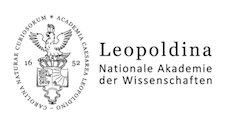Most people infected with SARS-CoV-2 recover quickly and completely. However, numerous patients continue to experience symptoms weeks or even months after the acute phase of infection. This phenomenon is often referred to as "Long Covid". It can include a wide range of symptoms such as cognitive dysfunction, shortness of breath, heart problems, smell and taste disorders, insomnia, fatigue or depression. The variety, diversity and severity of symptoms as well as the fact that they can come and go or relapse over time, make Long Covid a difficult condition to treat. In order to better understand the science behind Long Covid, a large number of studies have been initiated at the national and international level.
The Leopoldina International Virtual Panel (LIVP) will take into account the latest research on the causes and symptoms of Long Covid. From an evidence-based perspective, it will also discuss strategies to prevent long-term consequences of SARS-CoV-2 infection and to treat and support patients with Long Covid.
The Leopoldina will welcome the following experts to the podium:
Professor Michael Edelstein, MD, Associate Professor of Epidemiology and Public Health, Bar-Ilan University, Safed, Israel
Professor Akiko Iwasaki, PhD, Sterling Professor of Immunobiology and Molecular, Cellular, and Developmental Biology, Yale University, New Haven, United States
Professor Marc Lecuit, MD, PhD, Director of the Biology of Infection Unit, Institut Pasteur, Paris, France
Professor Dr Carmen Scheibenbogen, Acting Director of the Institute of Medical Immunology, Charité Universitätsmedizin Berlin, Germany
This panel discussion will be moderated by Kai Kupferschmidt and is part of the Leopoldina International Virtual Panel Series.
In July 2020, the Leopoldina launched a virtual format for global scientific exchange: Leopoldina International – a series of online panels organized by Leopoldina’s International Relations Department in cooperation with its international partners. Leopoldina International offers a virtual room for the global scientific community to convene and for the interested public to join the dialogue with scientists. Previous topics addressed the COVID-19 pandemic from different angles, including vaccination, multimorbidity, mental health, data, and contact tracing.
